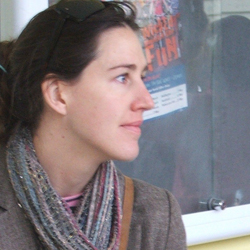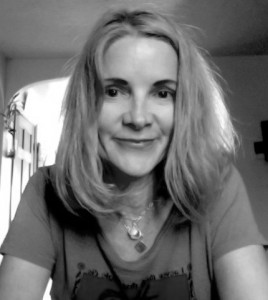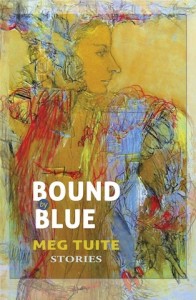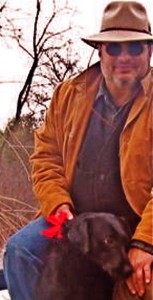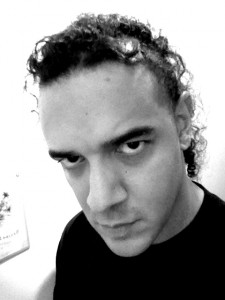 We are pleased to welcome author, editor and poet John Lawson to Writers on Craft this month. John is the author of nine books of fiction and poetry, and seven chapbooks. Over 500 of his poems, stories, and articles have been published in magazines, anthologies, literary journals, and newspapers worldwide. John was a winner of the 2001 Fiction International Emerging Writers Competition; in addition to being a finalist for the Bram Stoker Award (2006, Superior Achievement in Poetry) and the Wonderland Award for Bizarro Fiction (2007, collected fiction), other award nominations include two for the Rhysling Award, two for the Dwarf Stars Award, and the Pushcart Prize.
We are pleased to welcome author, editor and poet John Lawson to Writers on Craft this month. John is the author of nine books of fiction and poetry, and seven chapbooks. Over 500 of his poems, stories, and articles have been published in magazines, anthologies, literary journals, and newspapers worldwide. John was a winner of the 2001 Fiction International Emerging Writers Competition; in addition to being a finalist for the Bram Stoker Award (2006, Superior Achievement in Poetry) and the Wonderland Award for Bizarro Fiction (2007, collected fiction), other award nominations include two for the Rhysling Award, two for the Dwarf Stars Award, and the Pushcart Prize.
He is also a founding editor of Raw Dog Screaming Press. He spent four years as editor-in-chief of The Dream People online literary journal of bizarro fiction and poetry. Other editorial projects include two print anthologies, four e-anthologies, and freelance work for such companies as National Lampoon and Double Dragon Publishing.
What do you read when you despair at the state of either your work or modern literature-any “go to” texts?
Typically I’ll look at something I feel is the bottom of the barrel and draw inspiration from that, ha ha! Not unlike those gruesome car crash assemblies in high school meant to instill safe driving habits in students. Barring that cold splash of water approach I’ll opt for The Collected Poems of Sylvia Plath, Sailor & Lula: The Complete Novels by Barry Gifford, Survivor by Chuck Palahniuk, The Outlaw Bible of American Poetry, maybe Audition by Ryu Murakami or Let the Right One In by John Ajvide Lindqvist. I’m lucky enough to also hang with some brilliant contemporaries from whom it is easy to draw inspiration as well, so friends like D. Harlan Wilson keep me on my toes, and colleagues like Eric Miles WIlliamson, not to mention a great book published this year titled This Time, While We’re Awake. I can pretty much flip to any page from those sources, read a few paragraphs, be like “Uh-huh!” and go get down and dirty.
If you could give just one piece of advice to emerging authors about editing that has served you well, what would it be?
Avoid writing how you want the reader to feel. This one thing will clear up a lot of the word usage advice out there along with “show, don’t tell” all in one swoop, and in narrative terms will keep you focused on the details that matter. Which is fairly significant, because that allows a clearer understanding of what’s actually happening, and keeps the pace more brisk. As an editor I often see work in which there are so many descriptors of the adjectives and verbs that the action slows to a snail’s pace, scenes drag out forever, etc., and the constant emotional digressions about how things “feel” aren’t actual investment in character development. We don’t get any clearer idea of what the character is like after a page about how horrible and unjust something is, but if we see the character’s reaction to injustice, well, there you go. The phenomenon I describe here is not limited to those of us who are unpublished. My son has been enjoying audio books during our two hour roundtrip travel time to his school. The series he currently prefers was an attempt to cash in on the Harry Potter craze (and yes, the intro music employs the same notes and chord progressions as the theme from the Harry Potter films), and in the publisher’s haste the work was brought to market seemingly unedited. The books are an extreme example of what I describe above, far more egregious than what I normally see in the regional writing contests I judge, or in manuscripts I’ve rejected. I could go on, but the point is: time spent writing how you want the reader to feel about your writing is time spent not writing the characters, plot, and action.
How has your perception of what you “do” with your work changed as you have continued to write?
Fourteen years ago I was “having fun” and doing whatever I wanted, which did earn me some respect, but overall wasn’t appealing in any mass market sense. This was a good phase to get out of the way early on, because now that I have a solid grounding in “rule breaking” it’s a lot of fun to take various conventional forms and see what I can do within those parameters. Believe it or not I began with screenwriting, a field that is not friendly to the rebel. Luckily I soon found my way into fiction markets to entertain my disruptive tendencies, and poetry markets to hone my word usage, while still keeping a foot in the screenwriting arena to develop my understanding of traditional story structure and “how to please the crowd.” Years later I seem to be able to do all these things simultaneously, which pleases me to no end. In the beginning my vision was fairly narrow because I believed that in order to push boundaries one need focus on very select audiences at society’s fringe, whereas now the sky’s the limit. I feel I can write for every audience while still bringing something new to the table, and absolutely love doing romantic comedies—something I despised when I started writing.
What do you feel is the purpose of literature?
People need to be entertained, first and foremost, even if it’s just in the most shallow sense. Beyond the surface, though, literature hopefully touches on something thought provoking. I think the goal is to give the mind a full workout, to provide a safe environment to explore what it means to lose one’s lover, to kill another human, to find yourself in unexpected danger and prevail, to exercise a form of compassion you didn’t know existed. Literature is the original virtual reality, after all, but unlike video games or web sites or films: it exists only inside you. It’s a collaboration every time, really, with the reader filling in the chalk outlines provided by us authors. The purpose of literature? To work together toward finding a more enlightened place while distracted by the fun of it all.
As a human being, what is the best advice you have to offer?
You are going to die, and probably sooner than you think. What would you want to do before that happens? What will you regret? Sort these things out now. Not some figurative “now”—I mean this second. Why are you reading my words when your life is slipping by?
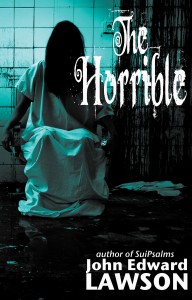 Your work spans many genres and styles. You also wear a lot of hats with all the various aspects of publishing you work within. Do you have any thoughts to share about how to manage a career while serving each genre well? How does time management work for you? Can you share how you’re able to accomplish so much? I’d also be interested in hearing the differences you perceive in the publication climates between literary and genre venues.
Your work spans many genres and styles. You also wear a lot of hats with all the various aspects of publishing you work within. Do you have any thoughts to share about how to manage a career while serving each genre well? How does time management work for you? Can you share how you’re able to accomplish so much? I’d also be interested in hearing the differences you perceive in the publication climates between literary and genre venues.
As referenced above I’ve spent a lot of time sick, or watching the people in my life suffer and die, so I don’t worry about what other people intend for me to do, instead opting to pursue my aspirations before time runs out. Does it always work out? No! But things wouldn’t always work out with a regular 9 to 5 job either, although that would probably pay better. So, I make time in my life by not having a life, essentially. There is no leisure time. I haven’t watched commercial TV in at least a decade, don’t socialize, don’t go to concerts or movies, and don’t sleep very much. That “blood, sweat, and tears” saying? That’s pretty much how I accomplish things.
Now, as I said, I started off doing whatever I wanted, which has been crucial for operating in the various writing circles I’m now established in. Sometimes I see my friends or others painted into a corner and trying to break out of being the [insert genre here] author, and feel bad for them. At the same time I don’t have the reputation of being the [insert genre here] author to fall back on and build a single, dedicated audience for myself, so it cuts both ways. No matter what style or genre you’re working with I learned early on to get involved in the scene. Be a reviewer or editor or proofreader or publisher. So many of the big breaks I’ve gotten came through the time I dedicated to publishing others as editor of the literary journal The Dream People—which only came about because I approached an indie publisher I admired and said, “Hey! How can I help?” They had a lit journal which was in limbo after losing its editors, and the rest is history. The Dream People published cross-genre work, so from there I organized anthologies in several genres featuring the authors I had worked with. Meanwhile, those authors became familiar with my writing and would direct me to the appropriate markets, or were themselves like-minded editors, vastly increasing my acceptance ratio. It continues to this day even though I’m involved in publishing books. Every hat I wear feeds the other, so to speak, keeping my career in motion—and in publishing a body at rest stays at rest, while a body in motion stays in motion.
Career aside, when it comes to serving the genres I can’t think about what genre I’m working in too deeply while writing, instead focusing on serving the needs of the story. Often I could set out to do one thing and find it really needs to be another, and then kill the story by trying to force it into a certain mold. I’ve not encountered the supposed snobbery of the literary scene; they only seem concerned with the quality of the writing regardless of the story’s focus. As for the genre circles, they are receptive so long as you operate with the required speculative element, although…well, I won’t say there’s snobbery per se, but some editors are far more “traditionalist” when it comes to experimentation and other more “literary” approaches to spec fic. Regardless, I don’t think you can go wrong serving the needs of the story above all else.
What’s recently released or in the pipeline for your readers? Give us a sneak peek.
Well, that’s a long one, isn’t it? So. On Halloween I brought my second poetry collection, The Horrible, back into print. While people liked my first collection well enough there was some resistance to mixing so many genres in a single volume, thus I focused solely on the horror genre with this one. There are other reissues in the works for the next couple months, both of which fall under the bizarro banner, those being my novel New Mosque City and my fiction collection Pocket Full of Loose Razorblades. As for my other poetry collections: Wholesome Terror, which is more literary and experimental, will be out later this month, and I hope to have No Clean Way to Die out by the end of the year—it’s a fun romp through phobias.
Two other fiction collections I’m doing final edits on before publication are Truth in Ruins and Devil Entendre. The work in both those is older, having mostly seen publication in the bizarro and horror press respectively, maybe a decade ago. Also…I hope to finally have Verminomicon: A Field Guide to the Vermin of Yuggoth, Abominations of a Haunted World ready soon. Verminomicon is a Lovecraftian art book almost a decade in the making, conceived by Anthony DeBartolis who spent six years building the sculptures. Just when I almost had the accompanying novella complete last year my computer died, taking with it the text (and the bulk of other writing from my last 14 years), which I’ve been slow in reconstructing.
Beyond that, 2014 will see a number of erotica releases from me, starting with NSFW: Not Safe For Women, and Colors Made of Tears. These works come easily, especially when attempting to answer: how would Kurt Vonnegut write erotica? Or: what would a collaboration between Thomas Harris and EL James turn out like? Those are too much fun, and I’ve even thrown together a free original soundtrack to accompany them on my site, currently about two and a half hours in length with more to come. Most exciting to me, though, is the children’s market. My son and I are always concocting stories together, so I’ve started writing early reader and mid-grade books. They’re addictive, and I’m hoping to see them start trickling into the marketplace over the next couple years. We’ll see how that goes, I suppose.
Writers on Craft is hosted by Heather Fowler, who cares about writing. She does a lot of it. Visit her profile on Fictionaut or see here for more: www.heatherfowlerwrites.com.
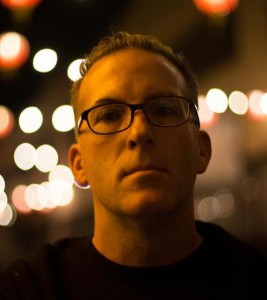
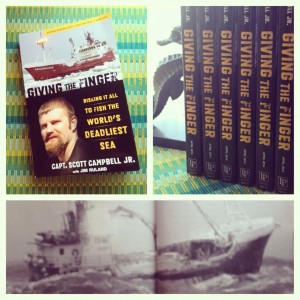
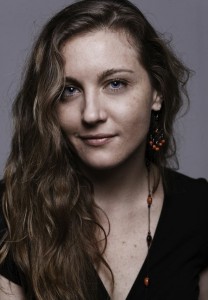
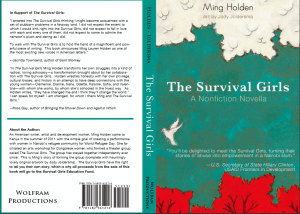



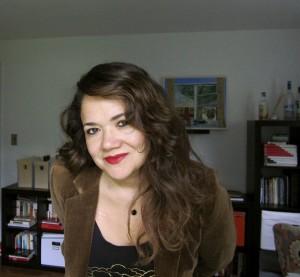 After I graduated from my MFA program, I felt battle weary. As a minimalist writer in the midst of Foster Wallace-worshipping post-modernists, my work provoked derision at the best of times or a yawn at the worst. I joined Fictionaut six months after I graduated, but I did not post work right away. I waited another couple of months before I worked up the nerve. For me, Fictionaut was a lab where I could do anything. And I did. Sometimes readers ignored a piece or chided me for writing it. But, every so often, a fellow writer acknowledged one of my pieces. The encouraging words and the critical challenges helped me to understand why I do what I do.
After I graduated from my MFA program, I felt battle weary. As a minimalist writer in the midst of Foster Wallace-worshipping post-modernists, my work provoked derision at the best of times or a yawn at the worst. I joined Fictionaut six months after I graduated, but I did not post work right away. I waited another couple of months before I worked up the nerve. For me, Fictionaut was a lab where I could do anything. And I did. Sometimes readers ignored a piece or chided me for writing it. But, every so often, a fellow writer acknowledged one of my pieces. The encouraging words and the critical challenges helped me to understand why I do what I do.